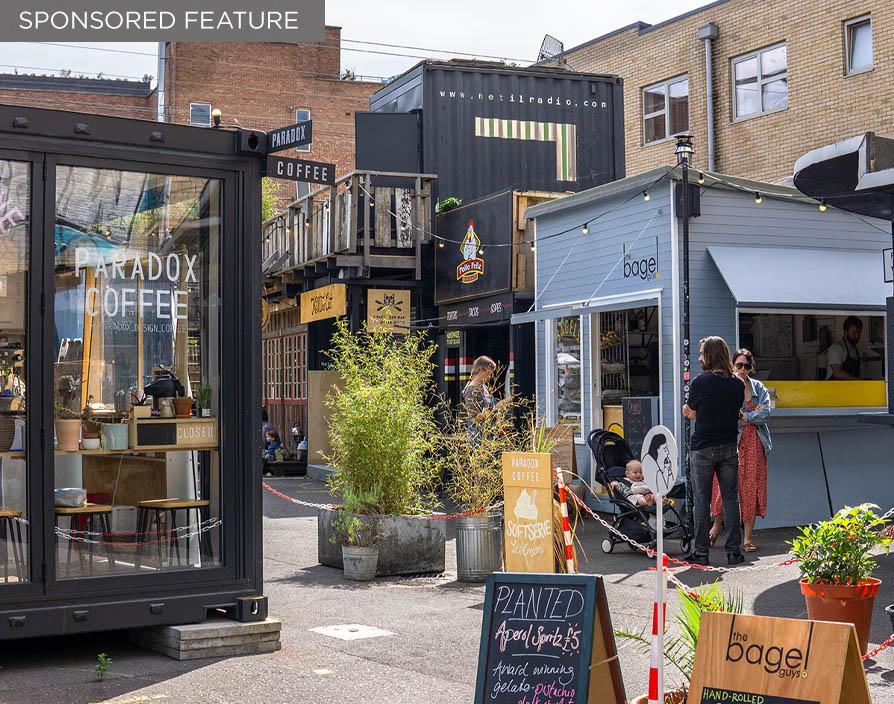Taking over a vacant retail space for a limited time only, and often with specific product lines and a targeted buyer in mind, the pop-up continues to breathe new life and economic growth into many ghost towns, revitalising brick and mortar spaces. But are there specific rules and considerations for those entering the pop-up shop industry? And in terms of insurance, what do landlords and those keen entrepreneurs leasing the space need to be aware of in particular?
Rising and recovering from the retail ashes
The physical fall of the retail giants such as Debenhams and Wilko, as well as much smaller, independent shops, can in many cases be attributed to the financial fallout from the pandemic, and now the ongoing cost of living crisis. These remain economic black spots that businesses simply couldn’t recover from, unable to pay rent, suppliers, or employees. And as a result, for a couple of years, many of us became almost numb to the sight of empty retail sites, boarded up shop fronts, and vague signage promises of “coming soon to this very space”.
But the seeds of retail recovery are being sewn in a new and temporary format. The short-term lease has given new business owners and brands a short-term but groundbreaking gateway so they can sell in a store space for a limited time only. Only recently (as of February 2024) an article on swlondonder online reported on this continuing phenomenon, stating that there had been a 23 per cent rise in UK-based pop-up shops across 2023. And according to Kersey’s solicitors, that figure, in terms of high street positioning, levels out to around 10,500 pop-ups across the UK, employing 26,000.
And while plenty of small and new businesses are satisfied with sticking to an online trading model rather than venturing into an actual shop, there are many that want and need the tangible connection with a customer, as well as embracing the chance to build brand awareness. From vintage clothing to cocktail bars, and from local artists exhibiting to neighbourhood cupcake-makers, there’s a sense of urgency and exclusivity that’s bringing customers through the time-limited doors. And they’re buying lots, too.
Setting up a pop-up enterprise is also cost-effective. There’s a finite time which helps operators control stock and manage bills, such as rent and utilities. So, what’s the story for insurance?
Planning considerations
A change in planning laws has also contributed to the pop-up boom, and the rules around this affect the commercial or business insurance policies required. A typical pop-up space, as long as it’s no larger than 150 square feet in an existing commercial space, can be used for up to two years for retail, hospitality, finance, office use, or leisure, and, according to Kersey’s, “planning permission is not needed for use that does not continue for more than 28 days in a 12-month period”.
All of the above is pop-up regulations 101 and will shape how both property owners and those leasing proceed with insurance.
Getting the insurance correct
The landlord should check that the existing building insurance covers pop-up usage, and it’s their responsibility to ensure it’s adequate.
The tenant, meanwhile, needs a separate policy for contents insurance and should also be covered for third-party, public liability, employers’ liability, as well product liability (which covers ill-effects from foods etc). In short, everything and everyone that enters the rented space is the responsibility of the shop operator, so a separate trade contents and fixtures insurance policy is the recommended solution.
In addition, no matter how short the pop-up lease is, the business is required to be registered with HM Revenue and Customs and be fully compliant. Without this, any insurance policy may be voided if a claim is made.
Also, many buildings insurance policies will highlight if there are additional premiums or considerations if the building has been vacant for more than a certain amount of time.
It’s also critical that the renter is satisfied with any additional insurance for flood cover and business interruption in the case of damage to the commercial property or unit.
In short, once the insurance for both sides is in place, that frees up the tenant to get on with business – and that short-term pop-up may just be the start of a new and expanding business empire.
This article comes courtesy of Howden – an expert insurance group that does insurance differently – offering flexible, high-quality cover and reassuringly straightforward service, while using insurance as a tool to increase resilience. United by a no-limits mindset, Howden is a powerful and passionate team, rising to any challenge to do right by your business.
Share via:







































